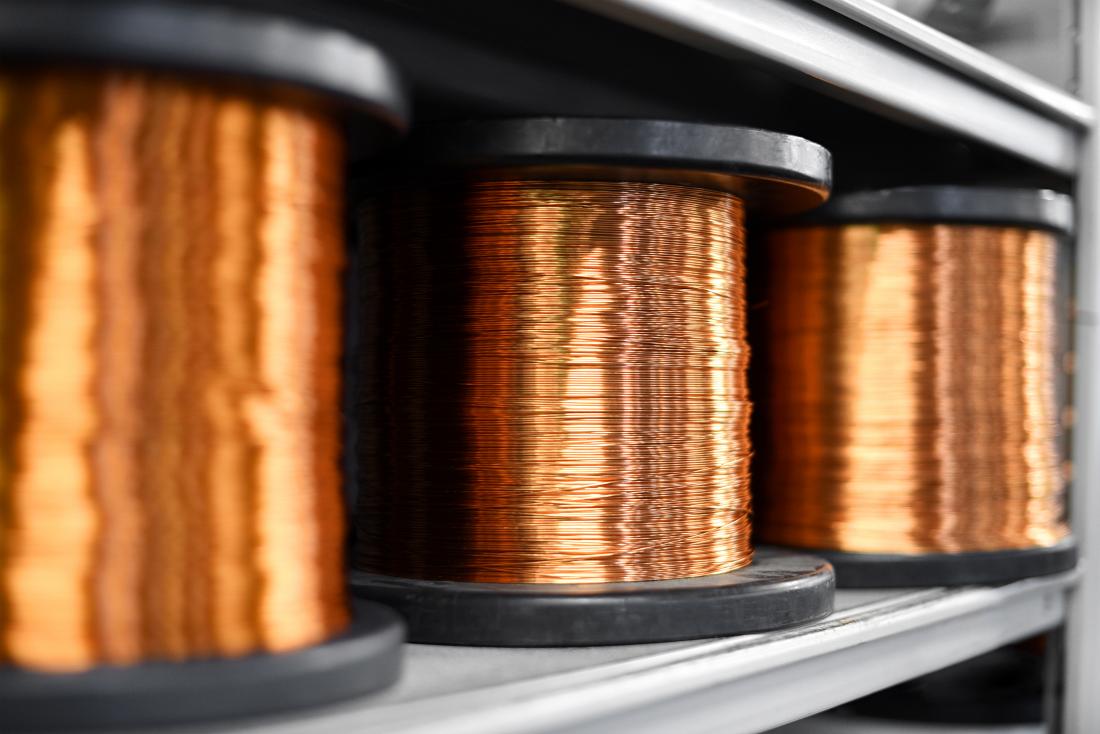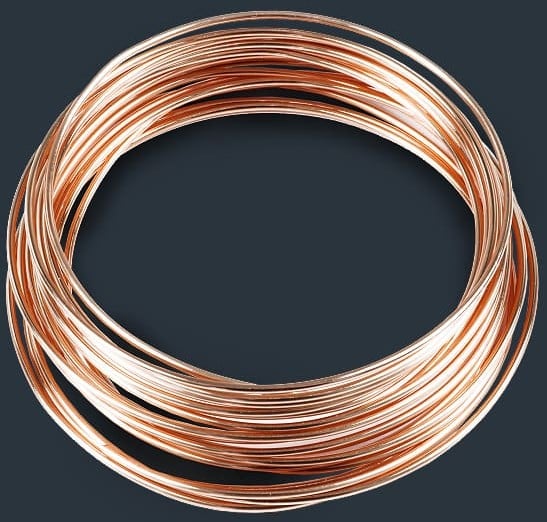Discovering the Diverse Applications of Copper Products in Modern Industries
From boosting the performance of electrical systems to playing a vital function in sustainable power innovations, the versatility of copper is evident. As industries increasingly focus on innovation and sustainability, the varied applications of copper call for a closer evaluation, especially concerning their possible impact on future technical developments and environmental techniques.
Electrical Applications of Copper
Copper is an essential material in the electrical sector, representing roughly 60% of the complete demand for non-ferrous metals globally - Copper Products. Its remarkable electric conductivity, which is virtually twice that of aluminum, makes it the preferred choice for a large range of electrical applications. From circuitry systems in commercial and residential buildings to high-voltage power transmission lines, copper makes sure efficiency and dependability in electrical energy shipment
Along with circuitry, copper is important to the manufacturing of electric components such as electric motors, transformers, and generators. These elements take advantage of copper's thermal conductivity and pliability, necessary for warm dissipation and efficient performance. Moreover, copper's resistance to rust improves the life-span and toughness of electrical systems, making it an affordable option in the lengthy term.
The growth of eco-friendly power sources, such as solar and wind power, has actually further increased the need for copper in electrical applications. As markets transition in the direction of lasting energy services, copper's role comes to be even a lot more crucial. Overall, the convenience and performance features of copper solidify its standing as a foundation product within the electric market, driving technology and performance throughout various applications.
Plumbing and Piping Solutions
In modern-day pipes systems, the choice of products dramatically impacts both performance and longevity. Copper has actually emerged as a preferred choice because of its one-of-a-kind properties, consisting of corrosion resistance and antimicrobial attributes. These attributes make certain that copper piping stays risk-free and long lasting for transporting safe and clean water, a vital factor to consider in property and business applications.
Among the crucial advantages of copper in pipes is its ability to withstand heats and pressures, making it suitable for a selection of applications, from warm water systems to heating and cooling down networks. In addition, copper's flexibility enables much easier setup in complex piping formats, lowering the risk of leakages and failures.
One more noteworthy benefit is copper's lengthy lifespan, usually exceeding half a century with correct upkeep. This durability not just reduces replacement prices however likewise adds to sustainable methods by reducing waste. Additionally, copper's recyclability straightens with modern environmental standards, advertising a round economy within the pipes industry.
Copper in Renewable Power
The adaptability of copper prolongs past pipes applications, playing a crucial duty in the eco-friendly energy market. Its exceptional electrical and thermal conductivity makes it a necessary product in the manufacturing and circulation of eco-friendly energy resources, specifically solar and wind power. In solar panels, copper is utilized in solar batteries and electrical wiring, assisting in reliable power conversion and transmission. Its resistance to deterioration ensures lasting performance, which is essential for taking full advantage of energy output gradually.

Additionally, as the worldwide need for electrical lorries (EVs) rises, copper's role in battery systems and billing facilities comes to be also extra substantial. The material's ability to conduct electricity efficiently is integral to the performance of EV batteries, enhancing variety and charging speed.
Copper's Duty in Electronic devices
Electronic devices manufacturing counts greatly on copper's phenomenal properties, specifically its high electric conductivity and this contact form thermal effectiveness. These features make copper an excellent selection for a variety of digital components, including connectors, motherboard, and electrical wiring. The metal's capacity to effectively transmit electrical signals makes certain marginal energy loss, which is crucial in Resources high-performance digital tools.
In addition, copper's thermal conductivity plays a considerable role in warmth dissipation, safeguarding delicate elements from overheating. This is especially important in modern-day electronics, where portable designs bring about enhanced warm generation. Copper is additionally favored for its pliability and ductility, enabling it to be conveniently shaped into complex designs that satisfy the demands of sophisticated electronic applications.
With the rise of consumer electronics, telecoms, and electric automobiles, the need for copper in the electronics sector proceeds to expand. As developments in modern technology develop, copper remains important to accomplishing greater efficiency and reliability in digital items. Its recyclability further boosts its appeal, as makers look for lasting options without jeopardizing quality. Therefore, copper continues to be a keystone material in the ever-expanding field of electronic devices.
Innovative Utilizes in Manufacturing

One notable application remains in additive manufacturing, where copper-based products are used in 3D printing procedures. This permits the creation of intricate geometries and light-weight components, especially in the aerospace and auto markets. Additionally, copper's thermal conductivity makes it an excellent option for heat exchangers, improving performance in industrial air conditioning systems.
Furthermore, the increase of wise production has seen the unification of copper in IoT devices, where its conductive abilities sustain advanced noticing innovations. In the realm of renewable resource, copper is essential in the production of solar panels and wind turbines, facilitating a lot more reliable energy conversion and circulation.
As industries aim for sustainability and advancement, copper's adaptability and efficiency continue to position it as an essential material, driving innovations in manufacturing and adding to the development of smarter, much more effective items.
Verdict
The integral role of copper in sustainable power and its crucial feature in electronics highlight its significance in progressing sustainable techniques. Jointly, these applications show copper's vital contribution to technological progression and industrial effectiveness in contemporary society.
From boosting the performance of electrical systems to playing an essential function in sustainable energy technologies, the convenience of copper is obvious. As markets increasingly prioritize development and sustainability, the diverse applications of copper necessitate a closer assessment, especially regarding their potential impact on future technical improvements and ecological methods.
The growth of sustainable energy resources, such as solar and wind power, informative post has further boosted the demand for copper in electric applications. In general, the flexibility and performance features of copper solidify its standing as a cornerstone product within the electrical market, driving development and effectiveness throughout various applications.
The adaptability of copper extends beyond pipes applications, playing an important function in the sustainable power sector.
Comments on “The Ultimate Guide to Sustainable Living with Eco-Friendly Copper Products”